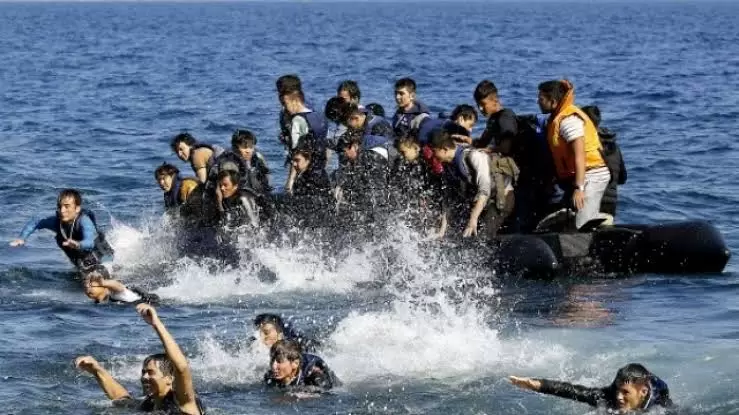

Last updated on September 11th, 2021 at 03:32 pm
Up to 150 people may have drowned in a shipwreck off the coast of Libya, the UN refugee agency says.
A further 150 people were rescued by fishermen and returned to Libya by coastguards, the UNHCR said.
It is not clear if the migrants were on one or two boats that left the Libyan town of al Khoms, some 120km (74.5 miles) east of Tripoli.
If confirmed, it would be the deadliest shipwreck in the Mediterranean so far this year.
Thousands of migrants attempt to cross the Mediterranean to Europe every year, and Libya is a key departure point.
Those who make the journey often travel in poorly maintained and overcrowded ships, and many have died.
But since mid-2017, the number of migrant journeys has declined dramatically.
The decline is largely because Italy has engaged Libyan forces to stop migrants from setting off or return them to Libya if found at sea – a policy condemned by human rights organisations.
The UN has repeatedly said people rescued in the Mediterranean should not be sent back to Libya because of the conflict and the inhumane conditions in which migrants are kept, the BBC’s Imogen Foulkes reports.
In the first three months of 2019, some 15,900 refugees and migrants arrived in Europe via Mediterranean routes – a 17% decrease on the same period in 2018.
(BBC)
The U.S.-based driver training company Zutobi analyzed road safety worldwide and found South Africa stays last in driving danger since…
The Basketball Africa League (BAL) returns for its 2025 season with exciting changes and developments. Since 2019 the NBA-linked basketball…
The Somali president supports their military forces to eliminate the threats from Al-Shabaab, ISIS, and Al-Qaeda. The Somali National Army…
UAE President Sheikh Mohamed bin Zayed Al Nahyan held talks with President Faustin Archange Touadéra of the Central African Republic…
African football teams struggle intensely in the World Cup Qualification rounds to earn their place on the international football stage.…
The journey toward the 2026 FIFA World Cup is rapidly intensifying for all African teams, who now hold a historical…
This website uses cookies.